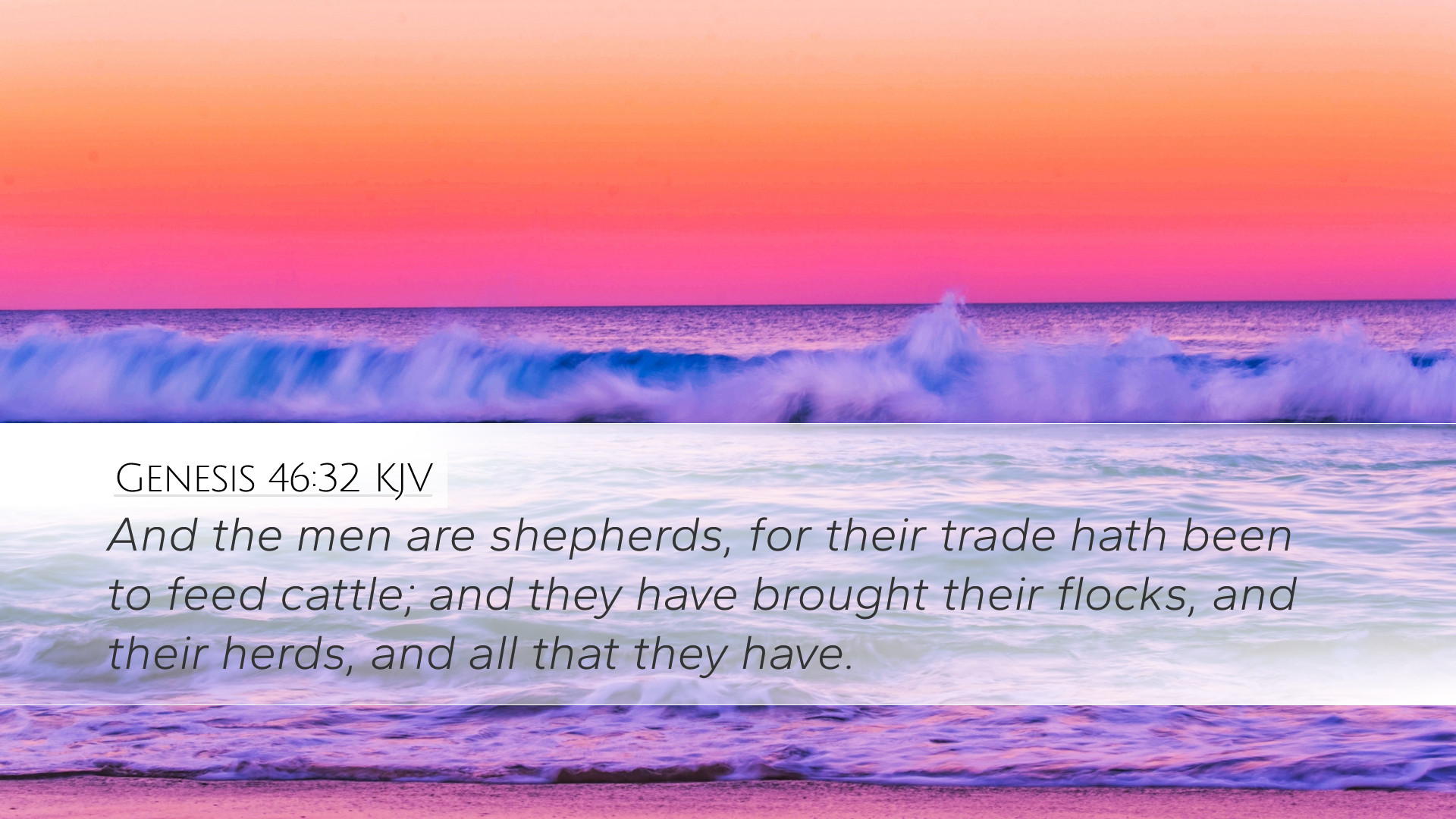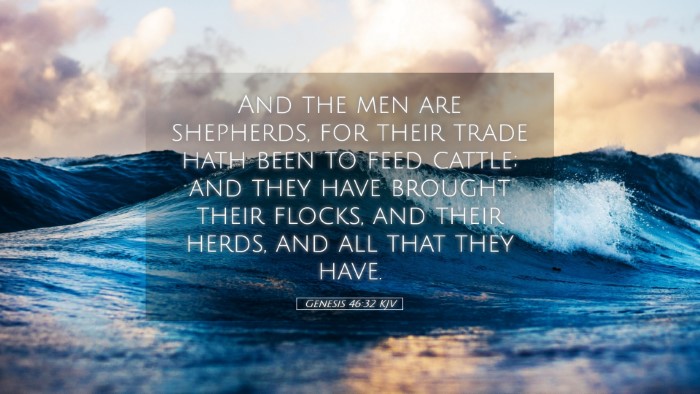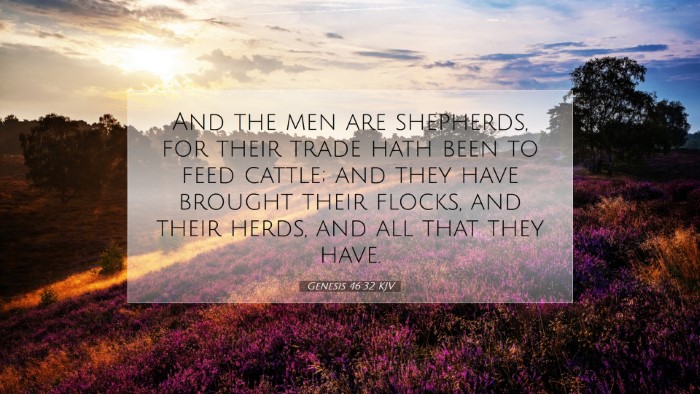Commentary on Genesis 46:32
Verse Context: Genesis 46:32 reads, "And the men are shepherds, for their trade hath been to feed cattle; and they have brought their flocks, and their herds, and all that they have." This verse is part of the narrative where Jacob and his family are preparing to move to Egypt during a time of famine, a critical point in the story of the Israelites.
Introductory Thoughts
The mention of the occupation of Jacob's sons serves multiple purposes in the narrative. First, it emphasizes their lifestyle and values, rooted in pastoral life, representing traits such as patience, reliance on God's provision, and a deep connection to their heritage. It sets the stage for understanding their identity, which will play a crucial role in their story in Egypt and beyond.
Theological Implications
Identity and Heritage: The identity of the Israelites as shepherds is significant. According to Matthew Henry, this designation highlights a divine intentionality in Jacob’s lineage. God, who is referred to in the Bible as the Shepherd of Israel, is mirrored in the occupations of His people. Shepherding symbolizes care, leadership, and divine providence, foreshadowing the relationship God will maintain with His people in the future.
Faithfulness to God’s Calling: Albert Barnes suggests that by identifying themselves as shepherds, Joseph's brothers reflected their commitment to the land that God had provided for them. Their acknowledgment of farming not only their past but also their profession illustrates a continuity between God’s requirements of His people and their lifestyles. This serves to connect them to the agrarian covenant promises made with their ancestors.
Historical and Cultural Insights
This verse also provides insight into the socio-economic conditions of the time. Egypt was known for its agricultural prowess, particularly in grain production, but despised shepherding, viewing it as a lower class profession. Adam Clarke comments that this disdain was prevalent, emphasizing that Joseph’s family, even when needing refuge, faced prejudice due to their occupation. This tension sets the stage for the future enslavement of the Israelites and offers a commentary on how identities can carry social implications.
Pastoral Applications
Faithfulness in Our Calling: For modern-day leaders and clergy, this verse serves as a reminder of the significance of one's vocation. Just as the sons of Jacob were faithful shepherds, so too are ministers called to shepherd their flocks. Matthew Henry emphasizes that the authenticity of one’s calling is inherently tied to how well they nurture and lead their congregations. A reflection in pastoral identity invites a deeper commitment to serve and guide with integrity.
Cultural Relevance: Understanding the social implications of one's life choices is vital for leaders today. As Albert Barnes points out regarding how the Egyptians viewed shepherds, pastors must navigate cultural biases and perceptions while remaining steadfast in their identity and mission. This calls for a discerning ministry that engages with culture while adhering to God’s truths.
Conclusion
Genesis 46:32 is not merely a statement about occupation; it encapsulates deeper meanings of identity, heritage, and the complexities of societal interactions. It invites readers—especially pastors, students, theologians, and Bible scholars—to explore the rich tapestry of Scripture through insights from our shared faith history.
In re-examining the biblical text through the lenses of public domain commentaries, it becomes clear that the role of shepherd in this context extends beyond a job description. It carries profound theological implications regarding how God leads His people and how they are called to represent Him in the world. As we engage with the Scripture, may we emulate the shepherd—a role that encapsulates care, diligence, and humility as we shepherd those God has entrusted to us.


